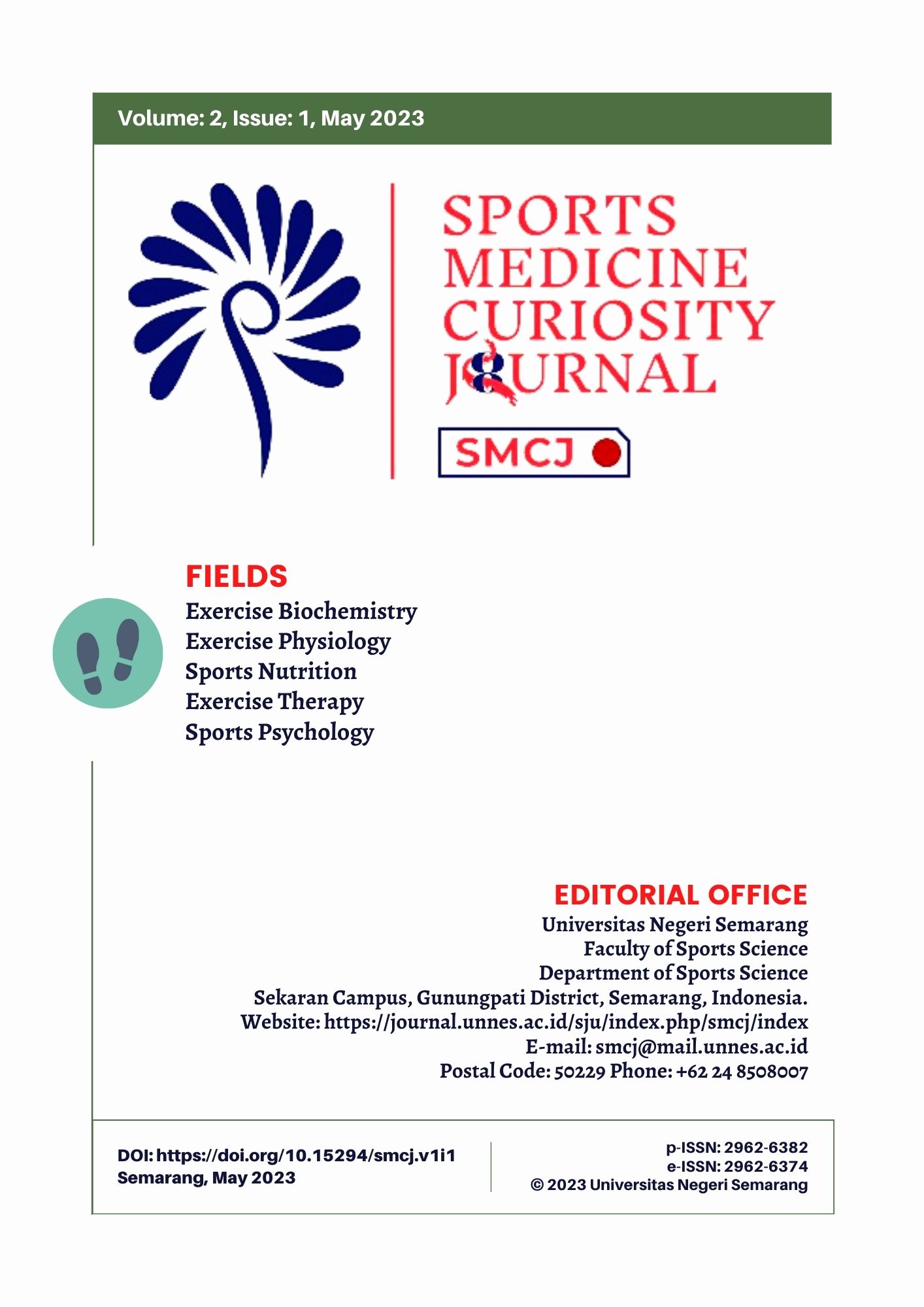The Effect of Brisk Walking Exercise on Changes in ESR Levels and CRP in Old Women with Symptoms of Rheumatoid Arthritis
Abstract
Examination of the sedimentation rate (ESR) and C-reactive protein (CRP) is recommended as an initial examination in patients suspected of having symptoms of rheumatoid arthritis. Brisk walking is a form of moderate activity aerobic exercise using fast walking techniques for 20-30 minutes with an average speed of 4-6 km/hour. This training model is effective enough to increase the maximum capacity of the heart rate, stimulate muscle contraction, breakdown of glycogen and increase tissue oxygen. The method in this study was a quasi-experimental design with a pre-test – post-test group design without a control group. The sample in this research is 10 respondents. The data collection used was in the form of pre-test and post-test data using data analysis techniques using the independent sample t test and processed using the SPSS application version 20. The results showed 1) There was a significant effect between giving brisk walking exercise to ESR levels (mm/h) in elderly women with rheumatoid arthritis symptoms from the t-test results that the value of P <0.05. 2) There is a significant effect between giving brisk walking exercises on CRP (mg/L) levels in elderly women with rheumatoid arthritis symptoms, this can be seen from the results of the t-test that the value of P <0.05. 3) There is a significant effect between giving brisk walking exercise to ESR levels (mm/h) and CRP levels in elderly women with rheumatoid arthritis symptoms, this can be seen from the results of the t-test that both P <0.05.





